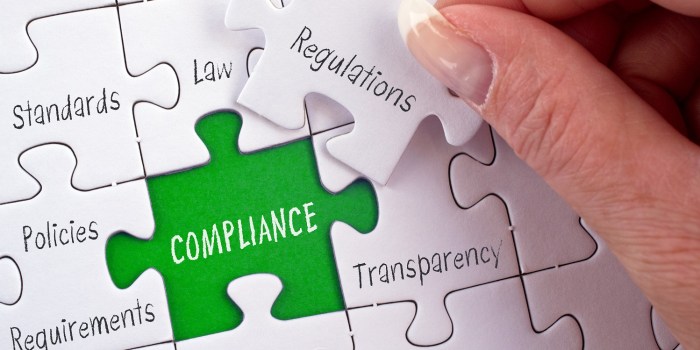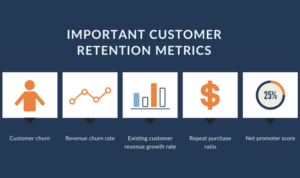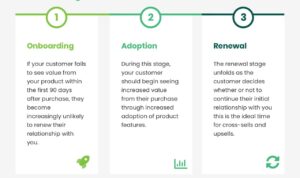Online Business Compliance kicks off with the importance of following regulations and laws to keep businesses safe and thriving in the digital world. From data protection to cybersecurity, this topic delves into the essential aspects that online businesses need to navigate.
Importance of Online Business Compliance

Online business compliance is essential for the smooth operation and sustainability of any business operating in the digital realm. It involves adhering to laws, regulations, and standards set by authorities to ensure ethical practices and protect consumers.
Non-compliance in the online business environment can lead to severe consequences such as legal actions, fines, reputation damage, and even the closure of the business. It can also result in loss of customer trust, which is crucial for the success of any online business.
Examples of Laws and Regulations
- Privacy Laws: Online businesses need to comply with data protection regulations such as the General Data Protection Regulation (GDPR) in Europe or the California Consumer Privacy Act (CCPA) in the United States to safeguard customer data.
- Consumer Protection Laws: Businesses must adhere to laws that protect consumers from fraud, false advertising, and unfair business practices to maintain trust and credibility.
- Payment Card Industry Data Security Standard (PCI DSS): This standard ensures that online businesses securely handle payment card information to prevent data breaches and protect sensitive financial data.
- Digital Millennium Copyright Act (DMCA): Online businesses must respect intellectual property rights and comply with copyright laws to avoid legal disputes related to the unauthorized use of copyrighted materials.
Key Aspects of Online Business Compliance

When it comes to online business compliance, there are several key aspects that businesses need to focus on to ensure they are meeting the necessary regulations and standards.
Data Protection and Privacy Regulations:
Data Protection and Privacy Regulations
- Businesses must comply with regulations such as the General Data Protection Regulation (GDPR) to protect customer data.
- They need to have clear privacy policies in place and obtain consent from customers before collecting any personal information.
- Failure to comply with these regulations can result in hefty fines and damage to the business’s reputation.
Cybersecurity Measures:
Cybersecurity Measures
- Implementing strong cybersecurity measures is crucial to protect sensitive data from cyber threats.
- Businesses need to regularly update their security systems, conduct vulnerability assessments, and provide employee training on cybersecurity best practices.
- Having a solid incident response plan in place can help mitigate the impact of data breaches and other security incidents.
Strategies for Achieving Online Business Compliance
When it comes to ensuring online business compliance, there are several key strategies that can help businesses stay on the right side of regulations and laws. Developing a compliance program, conducting regular audits, and staying up-to-date with changing regulations are crucial components of a successful compliance strategy.
Best Practices for Developing a Compliance Program
Creating a comprehensive compliance program is essential for online businesses to ensure that they are following all relevant laws and regulations. Some best practices for developing a compliance program include:
- Designating a compliance officer or team responsible for overseeing compliance efforts.
- Conducting a thorough risk assessment to identify potential areas of non-compliance.
- Implementing policies and procedures to address compliance issues and provide guidance to employees.
- Providing regular training to employees on compliance requirements and expectations.
- Establishing a system for monitoring and reporting compliance violations.
The Importance of Regular Audits and Assessments
Regular audits and assessments are crucial for ensuring that an online business is meeting its compliance obligations. By conducting regular audits, businesses can identify areas of non-compliance and take corrective action before violations occur. Some tips for conducting effective audits include:
- Developing a checklist of compliance requirements to guide the audit process.
- Using automated tools to track and monitor compliance activities.
- Engaging with external auditors to provide an objective assessment of compliance efforts.
- Implementing a process for addressing and resolving compliance issues identified during audits.
Tips for Staying Up-to-Date with Changing Regulations
Staying current with changing regulations in the online business landscape is essential for maintaining compliance. Some tips for staying up-to-date with regulatory changes include:
- Subscribing to industry newsletters and publications to stay informed about regulatory updates.
- Attending conferences and seminars to learn about new regulations and compliance best practices.
- Engaging with industry associations and regulatory agencies to stay connected to the regulatory environment.
- Regularly reviewing and updating compliance policies and procedures to reflect changes in regulations.
Tools and Technologies for Online Business Compliance
In today’s digital age, online businesses face numerous challenges when it comes to compliance with regulations and standards. Fortunately, there are several tools and technologies available to help streamline compliance processes and ensure consistent adherence to legal requirements.
Software Solutions for Compliance, Online Business Compliance
- Compliance Management Software: These tools help businesses track, monitor, and manage compliance activities, deadlines, and requirements in a centralized system.
- Regulatory Change Management Tools: These solutions provide real-time updates on regulatory changes and help businesses adapt their compliance processes accordingly.
- Document Management Systems: These platforms enable businesses to securely store and organize compliance-related documents, making it easier to retrieve information during audits or inspections.
Role of Automation in Compliance
- Automated Compliance Checks: Automation can help businesses conduct regular compliance checks and audits, reducing the risk of human error and ensuring consistency in compliance practices.
- Workflow Automation: By automating workflows related to compliance tasks, businesses can improve efficiency and productivity, freeing up resources for other strategic initiatives.
- Compliance Reporting Automation: Automation tools can generate reports on compliance activities, performance, and gaps, providing valuable insights for decision-making.
Data Analytics for Monitoring Compliance
- Monitoring Compliance Metrics: Data analytics tools can help businesses track key compliance metrics, such as completion rates, violations, and trends, to identify areas for improvement.
- Predictive Analytics: By leveraging predictive analytics, businesses can anticipate compliance issues before they occur, allowing for proactive measures to be taken.
- Continuous Monitoring: Data analytics tools enable continuous monitoring of compliance activities, ensuring that businesses stay on top of regulatory requirements and changes.





